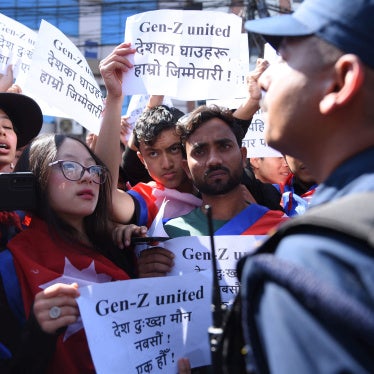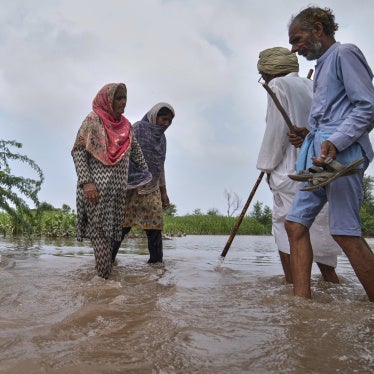NEW YORK -- Secretary of Defense Donald Rumsfeld has at last recognized the Geneva Conventions. Observing, correctly, that Iraq´s televised display of captured American soldiers violated the laws of war, Rumsfeld said that the conventions spell out the rules governing international armed conflict.
The United States is right to insist that Iraq honor the Geneva Conventions. But its position is weakened by failure to practice what it preaches in holding 641 prisoners without charges at the U.S. military facility in Guantánamo Bay, Cuba.
Most of the Guantánamo prisoners were captured during the U.S. war against the Taliban government of Afghanistan. The Bush administration says that the men were all combatants, but has refused to treat them as the laws of war require.
Under the Geneva Conventions, combatants captured in an international armed conflict must be treated as prisoners of war unless and until a ‘‘competent tribunal´´ determines that a specific prisoner is not entitled to that status. The U.S. government chose not to convene such tribunals for the Afghanistan war captives even though it has routinely convened them in past hostilities.
Instead, the United States decreed that no member of the Taliban´s armed forces was entitled to POW status — a decision that most independent international law experts found legally untenable. Furthermore, the United States insisted that no members of Al Qaeda deserved Geneva Conventions protection — not even those captured while fighting for Taliban armed forces.
The United States recently released 18 Guantánamo detainees, having concluded that they pose no threat to the international community. Five others were released previously. But hundreds remain in detention, for over a year now. Held without charges, they are in a legal limbo and subject, presumably, to continued interrogation.
The release of some detainees is welcome. Even more welcome from the Bush administration would be an acknowledgment that under the Geneva Conventions the United States lacks legal authority to hold many of the others. Indeed, at least three categories of prisoners at Guantánamo are unlawfully detained.
The first group is Taliban soldiers. In the war between Afghanistan and America, the Geneva Conventions permitted the United States to hold as prisoners without charges members of the Taliban government´s armed forces. But that war ended in June when the Hamid Karzai government assumed power in Kabul. The laws of war do not permit the continued detention of those soldiers unless they are being prosecuted for war crimes or other offenses. They should be released and repatriated.
The second group consists of civilians who — according to news reports quoting unnamed U.S. intelligence officials — were mistakenly sent to Guantánamo. The laws of war permit the internment of civilians in a war only when such detention is imperative for security reasons. If there are indeed civilians at Guantánamo who have no connection to the Taliban or Al Qaeda and who are not being prosecuted, they too must be released.
Finally, at least some suspected Al Qaeda members apprehended far from Afghanistan may have been brought to Guantánamo. Six, for example, were picked up in Bosnia-Herzegovina. The laws of war do not apply to persons who were not captured on a battlefield and who have no direct connection to an armed conflict.
President George W. Bush has repeatedly said that the war against terrorism is a war of values. At Guantánamo, that war is being lost. At risk are not only the rights of the individuals who are unlawfully detained today: by ignoring the clear mandates of international law, the United States invites every other country, including Iraq, to do the same.
Jamie Fellner is Director of the U.S. Program at Human Rights Watch.








